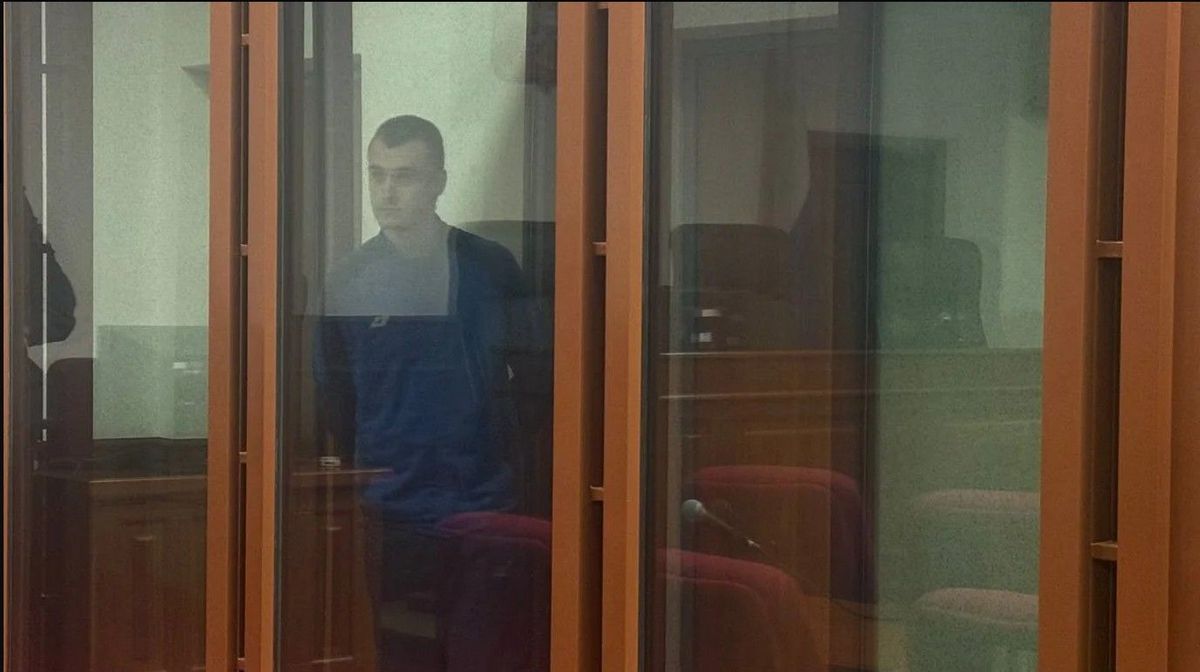May 15, 2025 - Freedom Person
In April 2025, the Sverdlovsk Regional Court in Russia sentenced 27-year-old Yevgeny Varaksin, a resident of the closed town of Lesnoy, to 12 years in a maximum-security penal colony. He was found guilty of "high treason" under Article 275 of the Russian Criminal Code. The criminal charges stemmed from a donation of 100 Polish zlotys (approximately $25), which, according to the prosecution, was intended to support the Ukrainian Armed Forces.

The Case of Yevgeny Varaksin
According to case materials, in April 2022, Varaksin was living in Poland, where he had moved shortly before Russia’s full-scale invasion of Ukraine. Before emigrating, he had worked as a mechanical assembler at Elektrokhimpribor, a facility that is part of Russia’s nuclear weapons complex under the state corporation Rosatom. After relocating, he took a job at an automotive factory and, based on his social media posts, was openly critical of working conditions in Russia compared to those abroad. Following the start of the war, he publicly condemned the Russian invasion.
The Russian Federal Security Service (FSB) claimed that in April 2022, Varaksin transferred money to an international organization, which allegedly used the funds to purchase military gear, ammunition, and tactical medical supplies for the Ukrainian military. Based on this, Russian authorities classified his actions as providing financial assistance to a foreign organization engaged in activities hostile to the Russian Federation.
However, media reports indicate that the donation was made to Caritas Poland, a Catholic humanitarian organization known for its support of Ukrainian refugees and families affected by the war, not for supplying military equipment.
Arrest and Trial
Varaksin returned to Russia in the summer of 2024, reportedly because his Polish work visa had expired. Before returning, he applied for political asylum in Poland but was denied. On July 22, 2024, he was arrested at the Russian border. Authorities reportedly found information about the donation on his phone, which became the primary basis for the criminal case.
His trial was held behind closed doors and lasted only four sessions. Judge Andrey Mineev, known for sentencing Wall Street Journal reporter Evan Gershkovich, found Varaksin guilty. He sentenced him to 12 years in a high-security penal colony, a fine of 300,000 rubles (approx. $3,300), and an additional 18 months of restricted freedom after release. According to the prosecution, Varaksin partially admitted guilt.
Legal Concerns and Human Rights Implications
The Varaksin case has drawn significant attention and criticism from independent legal experts and human rights advocates. Critics argue that the broad and politically motivated application of treason charges in Russia increasingly targets individuals who have expressed dissent or engaged in symbolic acts of humanitarian support, rather than acts that present a genuine threat to national security.
Under international and comparative legal standards, treason typically requires evidence of intent to betray the state or materially aid an enemy in wartime. In this case, the minimal amount donated, the lack of evidence linking it to military use, and the charitable nature of the recipient organization cast serious doubt on the intent and actual harm required to sustain a treason charge.
Supporters of Varaksin argue that his donation was a humanitarian gesture, likely intended to assist civilians affected by the war. They view his prosecution as part of a broader trend in the Russian judicial system, where “national security” laws are used to suppress dissent and criminalize acts of compassion or moral objection to the war.
Varaksin’s story highlights the eroding distinction between national security threats and personal expression in contemporary Russia. A single humanitarian donation, made during a time of emotional distress, was reclassified as a grave offense carrying a double-digit prison sentence.
This case reflects a growing climate of fear and repression, in which even minor expressions of sympathy for victims of war can lead to harsh criminal penalties. Closed trials, vague legal interpretations, and disproportionate punishments undermine the rule of law and turn the judiciary into a tool of political control.
If “treason” is interpreted so expansively, it not only discredits the legal system but also endangers the concept of justice itself. Punishment must be proportionate to the act and its consequences. When that principle is lost, law becomes less a shield and more a weapon.
by V. Ivaneko, Human Rights Defender


